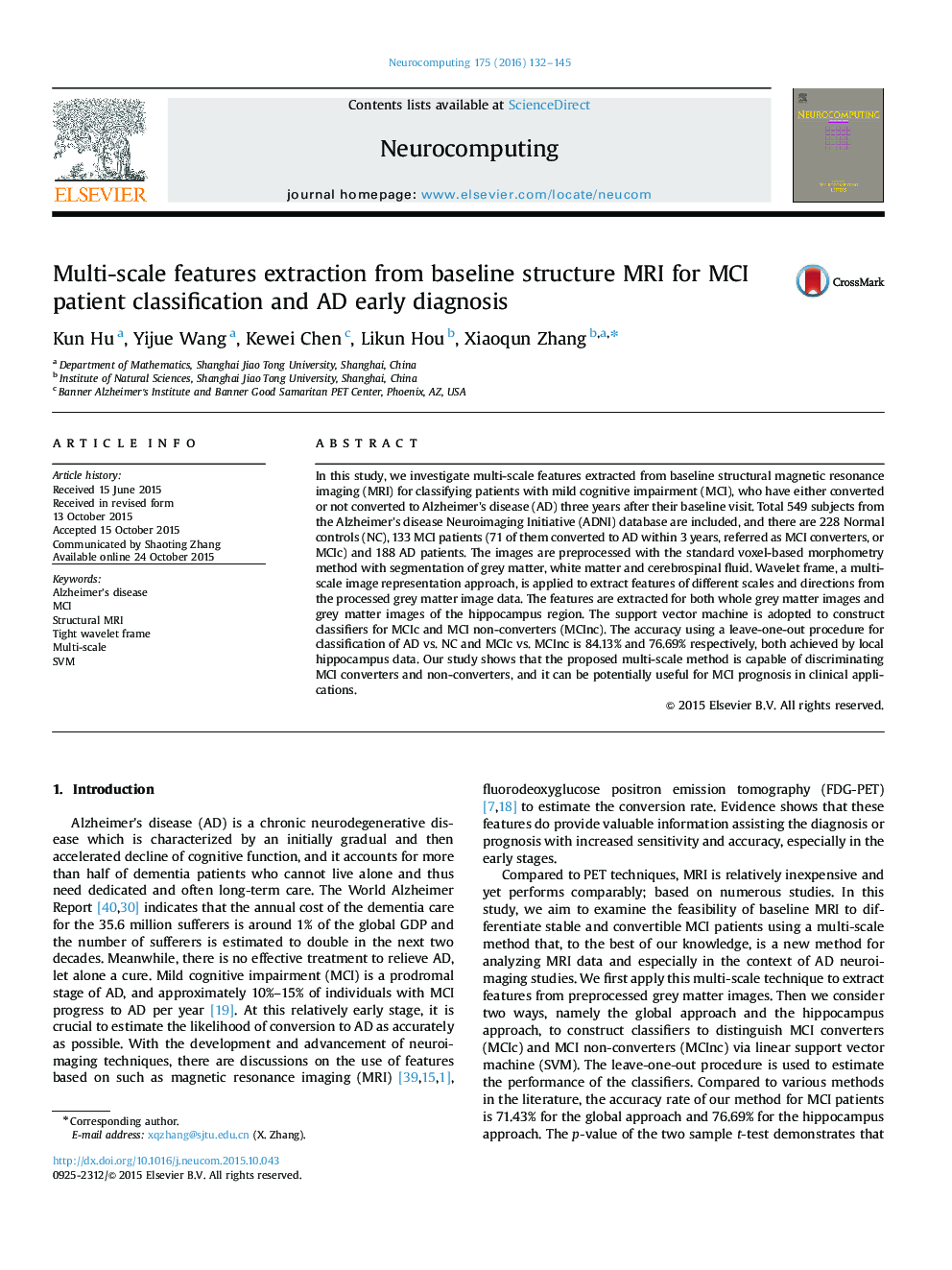| Article ID | Journal | Published Year | Pages | File Type |
|---|---|---|---|---|
| 407146 | Neurocomputing | 2016 | 14 Pages |
In this study, we investigate multi-scale features extracted from baseline structural magnetic resonance imaging (MRI) for classifying patients with mild cognitive impairment (MCI), who have either converted or not converted to Alzheimer׳s disease (AD) three years after their baseline visit. Total 549 subjects from the Alzheimer׳s disease Neuroimaging Initiative (ADNI) database are included, and there are 228 Normal controls (NC), 133 MCI patients (71 of them converted to AD within 3 years, referred as MCI converters, or MCIc) and 188 AD patients. The images are preprocessed with the standard voxel-based morphometry method with segmentation of grey matter, white matter and cerebrospinal fluid. Wavelet frame, a multi-scale image representation approach, is applied to extract features of different scales and directions from the processed grey matter image data. The features are extracted for both whole grey matter images and grey matter images of the hippocampus region. The support vector machine is adopted to construct classifiers for MCIc and MCI non-converters (MCInc). The accuracy using a leave-one-out procedure for classification of AD vs. NC and MCIc vs. MCInc is 84.13% and 76.69% respectively, both achieved by local hippocampus data. Our study shows that the proposed multi-scale method is capable of discriminating MCI converters and non-converters, and it can be potentially useful for MCI prognosis in clinical applications.
